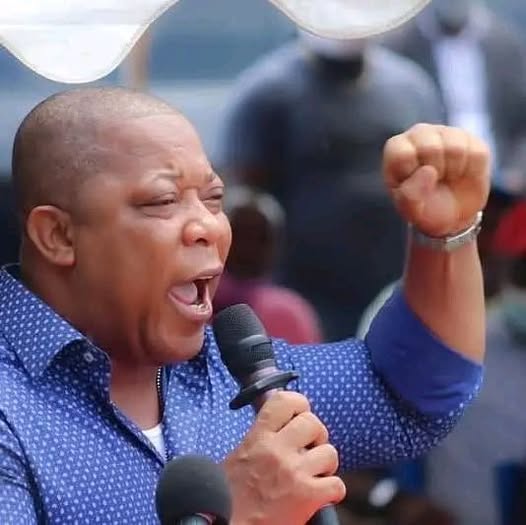As political tensions continue to mount over governance and accountability in Liberia, the civic movement Solidarity and Trust for a New Day (STAND) has declared August 4, 2025, as Citizens’ Appreciation Day—a symbolic and strategic event designed to honor citizens who participated in the July 17 “Enough is Enough” protest and to announce the next steps in their advocacy campaign.
The protest, which drew thousands to the streets of Monrovia, was a direct challenge to President Joseph Boakai’s administration, demanding urgent reforms, accountability in governance, and a decisive end to impunity. The event, while peaceful, was marked by what STAND describes as “threats, intimidation, and attempts by the government to silence dissent.” Despite these risks, citizens turned out in large numbers, signaling a growing frustration among the public with the current state of affairs.
A Day of Celebration, Reflection—and Potential Escalation
According to a press release issued by STAND, the August 4 event will serve as a national day of celebration to recognize the “brave and patriotic Liberians” who defied political pressure to speak out. Hosted at STAND Headquarters in Congo Town, Monrovia, the gathering will feature cultural performances, revolutionary songs, and communal festivities, including food and entertainment. The organizers hope to reinforce civic unity and commemorate the spirit of resistance embodied in the July 17 mobilization.
More critically, the date is strategically positioned. It comes just after the expiration of the 14-day ultimatum issued to President Boakai’s government to respond meaningfully to the petition delivered during the protest. The petition outlined citizens’ grievances and demands, including calls for institutional reform, stronger anti-corruption mechanisms, and a more inclusive governance framework.
In its release, STAND made clear that if the government fails to provide a credible and actionable response by the August 2 deadline, Citizens’ Appreciation Day will double as the platform for announcing a new phase of coordinated actions. These “wide-ranging and strategic” measures, organizers stress, will remain within the bounds of legality but are intended to escalate civic pressure on the administration.
Broader Coalition and Cross-Sector Mobilization
Beyond merely a celebration, the event is also being used as a rallying cry to consolidate the growing coalition that backed the July 17 demonstration. STAND has extended invitations to a broad cross-section of Liberian society, including civil society organizations, youth wings of political parties, student unions, informal sector workers (such as petty traders and motorbike riders), street vendors, market women, artists, media groups, religious institutions, and the Liberian diaspora.
This effort to unite diverse stakeholders under one civic umbrella underscores STAND’s broader strategy of intersectional mobilization. It also reflects a rising trend in Liberia’s post-war political landscape: grassroots coalitions challenging entrenched political systems through peaceful civic resistance.
Governance Pressure Mounts
The Boakai administration is now facing a significant test. Having come to power on promises of integrity, transparency, and national renewal, critics argue that the government has fallen short of expectations, particularly in addressing systemic corruption and public sector reform. The July 17 protest and its follow-up events have become both a referendum on the government’s first year in office and a warning signal of growing public impatience.
Political analysts suggest that STAND’s ability to maintain nonviolent discipline while expanding its support base could significantly shape Liberia’s democratic trajectory in the coming months. With opposition parties increasingly aligning with civic groups, and disillusionment spreading across various socioeconomic sectors, the risk of broader unrest cannot be discounted if the government remains unresponsive.
Looking Ahead
August 4 will thus be more than just a commemoration—it will be a critical indicator of the future direction of citizen-led political engagement in Liberia. Whether the Boakai government engages constructively or chooses to downplay the movement’s momentum may well determine not only the administration’s stability but also the trajectory of Liberia’s democratic evolution in the post-conflict era.
Signed by protest organizer MK Morlu Jr., the STAND statement concluded with a clear message: the people are watching, the clock is ticking, and the next move lies with the government.




